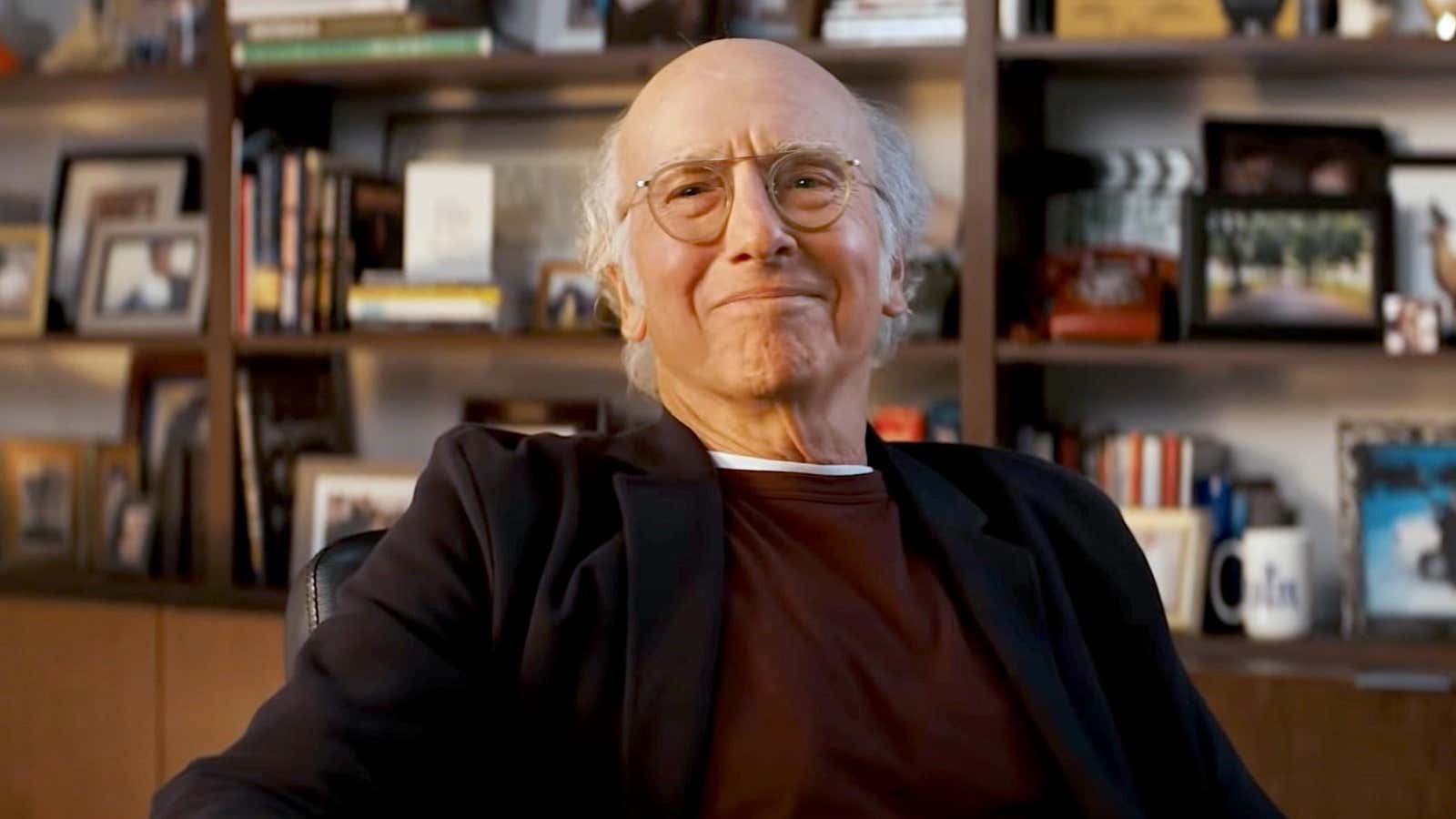“We need to meet people where they are—and that means embracing skepticism.” That is what former FTX CEO Sam Bankman-Fried said in a statement announcing the company’s Super Bowl commercial featuring the comedian Larry David on Feb. 13. In the one-minute advertisement, David dismisses some of history’s biggest technological and scientific inventions from the wheel to the light bulb. The subtext: This guy is always wrong.
The spot ends as David cringes at the notion of using FTX, a moment meant to be comedic, but one that now appears prophetic after the cryptocurrency exchange, once valued at $32 billion, files for bankruptcy.
Adding to the irony of David’s comedic distaste for FTX, the television star is now being sued, along with many other celebrities, for their involvement as paid endorsers of FTX. Also named in the class action lawsuit, filed in Miami by an FTX customer on Nov. 16, are other celebrities who publicly endorsed FTX, including Tom Brady, Gisele Bundchen, Shaquille O’Neal, Shohei Ohtani, Trevor Lawrence, Naomi Osaka, Stephen Curry, David Ortiz, Udonis Haslem, and Kevin O’Leary. The National Basketball Association’s Golden State Warriors, which entered a deal with FTX in 2021 making it the team’s official cryptocurrency platform was also named.
The first of what is likely to be a mountain of lawsuits
Edwin Garrison filed the proposed class action lawsuit against Bankman-Fried and his celebrity cohort in Miami on Nov. 16. The resident of Oklahoma, who claims that he invested in an FTX yield-bearing account using cryptocurrency hoping to earn interest from his investment, is seeking unspecified damages, but claims that FTX customers lost roughly $11 billion.
“Although the defendants disclosed their partnerships with the FTX entities,” reads one section of the lawsuit, “they have never disclosed the nature, scope, and amount of compensation they personally received in exchange for the promotion of the deceptive FTX platform, which the SEC has explained that a failure to disclose this information would be a violation of the anti-touting provision of the federal securities laws.”
It’s true the FTC prohibits misleading advertisements and endorsements. “Advertisers are subject to liability for false or unsubstantiated statements made through endorsements, or for failing to disclose material connections between themselves and their endorsers,” reads the Federal Trade Commission’s website (pdf). “Endorsers also may be liable for statements made in the course of their endorsements.” But Garrison and his potential co-plaintiffs may find it difficult to hold the sports celebrities liable for FTX’s alleged unscrupulous dealings.
“Liability attaches to endorsers where they fail to disclose, or where they aren’t sharing an honest opinion or belief,” says Aron Solomon, chief legal analyst at Esquire Digital, a digital marketing agency for attorneys.
Celebrity crypto endorsements are risky for all involved
Celebrities promoting cryptocurrency have been successfully penalized in the past for violating disclosure rules. In October, in an unrelated cryptocurrency case, television star and social media influencer Kim Kardashian was fined $1.26 million for failing to disclose the fact that she was paid to endorse the EthereumMax cryptocurrency on Instagram. In 2018, the Securities and Exchange Commission (SEC) fined boxer Floyd Mayweather and rapper DJ Khaled a combined $600,000 for failing to disclose that they were paid to endorse the Centra Tech cryptocurrency project.
In both of these cases, the celebrities ran afoul of the SEC’s anti-touting rules which prohibit the promotion of securities (section 17b of the Securities Act of 1933), without making it clear that it was a paid advertisement. In that respect, the FTX celebrity endorsements differ from the previous cases because in nearly every instance FTX disclosed, via press announcements, that the associated celebrities were participating in marketing campaigns.
“If plaintiffs can prove that Tom Brady [knew] that FTX was a scam or that [he knew Bankman-Fried] was a felon in the making, then, sure, they have a chance at successfully going after them,” says Solomon. “I don’t think there’s any way that any of these celebrity endorsers would have for one second risked their reputations by deceiving the public here.”
